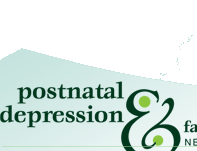 |

Feeling Angry with your Baby
To read the Introducton to Babys Click Here
- Sometimes people can feel angry with their children this does not mean you are a bad parent. It is what you do with this anger that is important.
- Feelings tell you information about what state you are in.
- Anger is a mixture of feelings and it often happens if we feel undermined, under threat, powerless or frustrated.
- Feelings are ok but acting on them might not be.
- Each of us is responsible for what we do and how we express our feelings, it is not ok to harm someone else with our feelings.
- What you think or tell yourself can contribute to feeling angry eg if you say to yourself my baby is screaming to annoy me you are likely to feel angry but if you say my baby is screaming because she needs something you are more likely to feel empathy for the baby and not feel angry.
What to do about anger
- Recognise that you are feeling angry and that you must take responsibility for it (not blame it on someone or something else).
- Observe yourself when you are like this, try and notice what led up to it and how this feeling developed in you (this can be very hard as people often feel that anger just comes out of the blue -but it doesnt).
- Reduce your stresses and work out what helps you to relax (healthy ways that dont involve alcohol or smoking).
- Recognise early signs of stress.
- Recognise triggers (certain things might push your buttons).
- Take time out for yourself.
- Plan positive events for yourself.
- Talk about how you are feeling with someone who understands. Ring a friend. If no-one is available seek professional help.
- Accept that when you agree or offer to do something it is your choice whether to do it.
If you are so angry that you may be a danger to your children or to yourself put the child somewhere safe, take a bit of space for yourself and if you cant calm down get help.
- Getting help is nothing to be ashamed of. Hurting a child is.
- If children are around a lot of anger, arguments, raised voices or physical aggression this can be very harmful to children.
- If a young child sees their main caregiver, usually their mother in danger this is as frightening to them as if they were in the danger themselves.
Sue and her husband came to see their GP. Sue said
I totally lost control. My baby was crying and crying and wouldnt stop. I didnt know what he wanted. I screamed at him and smacked him. I didnt know what to do. I rang my husband at work and he came straight home.
Sue was diagnosed with PND. Extra supports were arranged for her at home that allowed her to have some time out for herself. She was started on medication. Her older child went to preschool and she went to a parenting course.
|
 |






